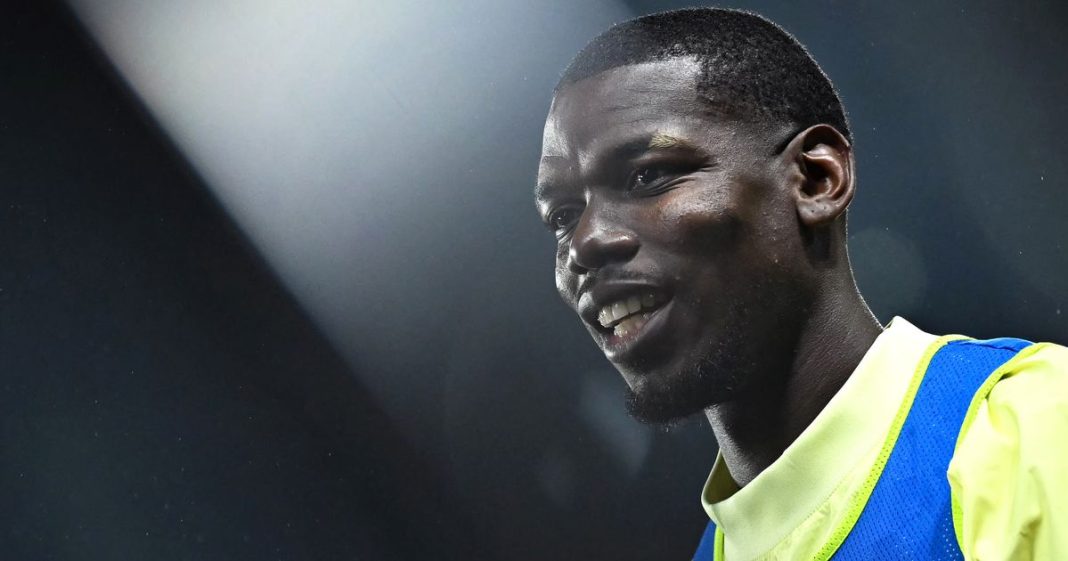The world of football, a theatre of dreams and heartbreaks, recently witnessed a poignant moment as former Manchester United and Juventus star, Paul Pogba, broke his prolonged silence following what he described as the “worst” period of his professional life. The French midfielder, once a dynamic force on the pitch, has been grappling with a four-year doping ban, a verdict that sent shockwaves across the global sporting community, including his legion of fans in India.
Pogba’s career, adorned with a World Cup winner’s medal and numerous domestic titles, now stands at a precarious crossroads. His recent candid interview offers a rare glimpse into the mental and emotional turmoil behind the headlines, forcing fans and critics alike to confront the human cost of sporting controversies. For a player who commanded record transfer fees and captivated audiences with his flair, the fall from grace has been as dramatic as his rise, sparking widespread discussion among Indian football enthusiasts about accountability, mental health in sports, and the unforgiving nature of top-tier competition.
The Long Shadow of a Four-Year Ban
The saga began in August 2023 when Pogba tested positive for DHEA, a substance that can increase levels of testosterone, following Juventus’s Serie A match against Udinese. Initially provisional, the suspension became a devastating reality in February 2024 when Italy’s anti-doping tribunal upheld the prosecution’s request for a four-year ban. This verdict effectively threatened to end the career of a player who, at 31, should be in his prime or nearing a graceful exit.
The news resonated deeply within India, a nation where European football holds immense sway. Social media platforms and sports forums buzzed with reactions, ranging from disappointment and disbelief to discussions about the importance of clean sports. Many Indian fans had admired Pogba’s flamboyant style and his journey from a promising academy product to a global superstar. The ban sparked debates about the stringent nature of anti-doping laws, the responsibilities of athletes regarding supplements, and the need for greater awareness, particularly among aspiring Indian sportspersons navigating a similar high-stakes environment.
Pogba has consistently maintained his innocence, claiming the positive test was due to accidental ingestion of a supplement recommended by an American doctor. However, the tribunal found his defense insufficient, leading to one of the most severe penalties in recent football history. The incident serves as a stark reminder of the unforgiving rules governing elite athletes, a lesson not lost on the burgeoning sporting landscape of India.
Pogba’s Emotional Unburdening: A Star Feels “Finished”
Breaking his silence, Pogba’s recent statements painted a harrowing picture of emotional devastation. He reportedly expressed immense pain, stating that “everything was taken away from me” and describing a profound feeling of being “broken,” both professionally and personally, echoing the sentiment of a career potentially lost. This raw honesty offered a stark contrast to the often-stoic public persona of professional athletes.
His words resonated beyond the confines of football, touching upon universal themes of disappointment, regret, and the struggle for dignity in the face of public scrutiny. “I just want to play football,” Pogba was quoted as saying, highlighting the simple joy that had been eclipsed by the scandal. He spoke of sleepless nights, the impact on his family, and the profound sense of unfairness that accompanied the verdict. For an Indian audience accustomed to the pressures faced by their own sporting heroes, Pogba’s vulnerability served as a poignant reminder that even global icons are susceptible to mental and emotional struggles.
The admission of feeling “finished” at 31 underscores the immense psychological toll such a ban can exact. It raises crucial questions about the support systems available to athletes facing career-threatening sanctions and the long-term impact on their well-being, discussions that are increasingly pertinent in India as professional sports grow.
A Glimmer of Hope? The Path Ahead
Despite the crushing verdict, Pogba is not without recourse. He has confirmed his intention to appeal the decision to the Court of Arbitration for Sport (CAS) in Lausanne, Switzerland. While the odds of overturning a full ban are slim, a reduction in the suspension period remains a possibility, potentially offering him a chance to return to professional football before his mid-thirties.
The appeal process will be a meticulous examination of the evidence, Pogba’s defense, and the procedural fairness of the initial tribunal. For fans globally, especially those in India who still cherish memories of his dazzling displays, the CAS appeal represents the last bastion of hope. Even a partial success could offer a glimmer of redemption for a player whose talent has often been overshadowed by off-field drama and now, a doping controversy.
Regardless of the outcome, Pogba’s journey is a powerful narrative about resilience, regret, and the harsh realities of professional sports. His decision to break his silence is not just about defending his name, but also about confronting his ordeal publicly, a step that might, in time, pave the way for healing and a potential, albeit challenging, comeback story.
As the football world watches, Paul Pogba’s future hangs in the balance. His personal struggle, now openly shared, transforms him from a mere statistic in a doping case into a human being grappling with profound professional and personal challenges. For Indian football fans, this saga serves as a compelling reminder of the fragility of sporting careers and the enduring spirit required to overcome adversity, even for the most gifted among them.




